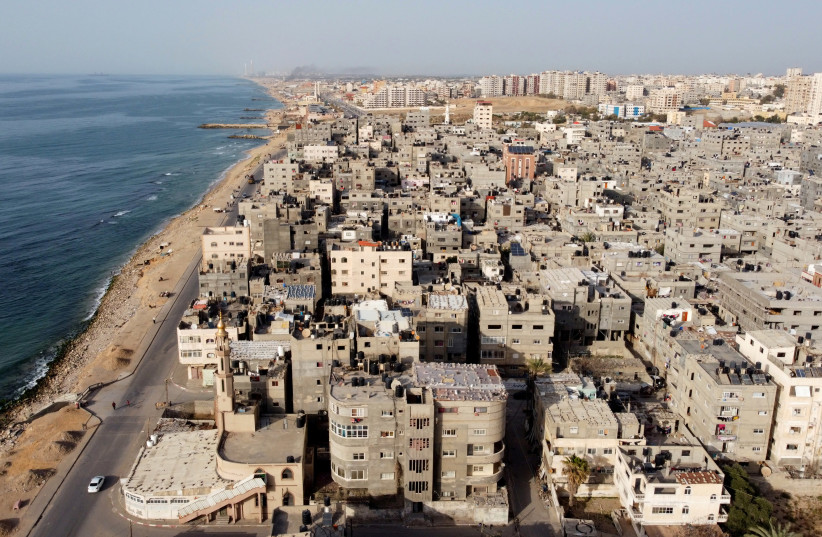Israel must grant Palestinians in the West Bank and Gaza 4G access so their economy can thrive, the World Bank stated in a report issued on Wednesday.
Israeli restrictions are “among the key impediments to development of the digital economy in the West Bank and Gaza,” said the report.
It highlighted a two-tiered system in which Israel is preparing to upgrade its telecommunications system from a 4G to 5G network, while Palestinians in Gaza use mostly a 2G system and a 3G one in the West Bank. The latter was made available to Palestinians only in 2018.
This comes at a time when the corona pandemic has increased the need for high-speed Internet at home.
The report explained that the Palestinian Authority has the “right to build and operate an independent telecommunications infrastructure” and can “establish its own telecom policies,” the World Bank explained.

But Israeli restrictions and control severely limit its ability to execute an effective digital telecommunications system, the bank explained.
Israel has “decision-making power over the frequency spectrum, and so far has refused to allocate the necessary spectrum to Palestinian telecom operators to deploy 4G frequencies,” the World Bank stated.
It also has restricted the import of telecommunications equipment and access to infrastructure and transmission sites in Area C, the report said.
Palestinian companies must work in partnership with Israeli companies to “access international submarine cables” that would allow them to connect to the global infrastructure, the report explained.
Bandwidth is set and sold by Israel, the report noted, adding that Palestinian telecommunication companies are charged a higher price than their Israeli competitors.
Palestinian telecommunication companies can not be competitive with their Israeli counterparts, the report said, adding that these companies are forced to offer more limited services at higher prices.
Those Palestinians who live within range of Israeli 4G systems are more likely to purchase plans through those Israeli companies rather than their now national ones, the report stated.
Palestinians who live in rural areas and who rely solely on their cellphones for internet access suffer the most from the limited web capacity, it further explained.
As a result of all these restrictions, the report said, the “West Bank and Gaza is placed below the developing country average in broadband penetration rate” according to the global Information and Communications Technology Development Index.
The broad range report explored a wide series of measures the PA could take to improve the integration of digital services within the public and private sector, including suggestions for a list of reforms. It noted, in particular, the importance of digitizing the banking system in light of international fiscal reforms.
Such digital improvements, the report added would also save money and increase job opportunities.
“Palestinians have all the capabilities needed to leapfrog into the digital economy. Development of the digital economy is among the PA’s national priorities. It is thus important to ensure continued strong political leadership on the digital agenda to facilitate institutional and cross-sector coordination,” said Kanthan Shankar, World Bank country director for the West Bank and Gaza.
Shankar also called on international donors to invest in improving the PA’s digital infrastructure.
“Investing in the Palestinian digital economy is more important than ever,” Shankar stated.
“Not only does it enhance its competitiveness and access to the global markets, providing jobs and a source of fiscal revenue, but it has also become vital in times of crisis. We have witnessed the significant move of many Palestinian businesses toward online channels during the COVID-19 pandemic.”
